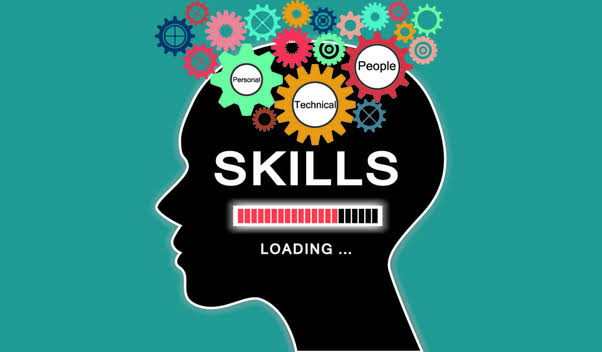
Shravan's BLOGS
Learn New Skills
Published: Sep 12th, 2021 07:49 pmWhat the Experts Say
Mastering new skills is not optional in today’s business environment. “In a fast-moving, competitive world, being able to learn new skills is one of the keys to success. It’s not enough to be smart — you need to always be getting smarter,” says Heidi Grant Halvorson, a motivational psychologist and author of the HBR Single Nine Things Successful People Do Differently. Joseph Weintraub, a professor of management and organizational behavior at Babson College and coauthor of the book, The Coaching Manager: Developing Top Talent in Business, agrees: “We need to constantly look for opportunities to stretch ourselves in ways that may not always feel comfortable at first. Continual improvement is necessary to get ahead.” Here are some principles to follow in your quest for self-improvement:
Check your readiness
When working on a new skill or competency, you need to ask yourself two things. First, is your goal attainable? “There are certain limits to what you can learn,” explains Weintraub. “For example, you may want to be a brain surgeon, but not have the eye-hand coordination required.” Second, how much time and energy can you give to the project? “It’s not like going to the pharmacy and getting a prescription filled,” says Weintraub. Self-improvement is hard work. Halvorson agrees: “Many people implicitly believe that if you have to work hard at something, it means you lack ability. This is rubbish.” Instead, recognize that learning a new skill takes extreme commitment. Unless your goal is attainable and you’re prepared to work hard, you won’t get very far.
Make sure it’s needed
Weintraub suggests you also make sure the skill is relevant to your career, your organization, or both. You may be jazzed up about learning how to speak in front of large audiences, but does your manager value that? Unless you absolutely need the skill for your job, or for a future position, it’s unlikely you’ll get money for training or support from your manager. Gaining a new skill is an investment and you need to know upfront what the return will be.
Know how you learn best
Some learn best by looking at graphics or reading. Others would rather watch demonstrations or listen to things being explained. Still others need a “hands-on” experience. Halvorson says you can figure out your ideal learning style by looking back. “Reflect on some of your past learning experiences, and make a list of good ones and another list of bad ones,” she says. “What did the good, effective experiences have in common? How about the bad ones? Identifying common strands can help you determine the learning environment that works best for you.”
Get the right help
Eliciting support from others can greatly increase learning. Find someone you trust who has mastered the skill you’re trying to attain. And look beyond your immediate manager who has to evaluate you. Weintraub suggests you ask yourself: “Who in my organization, other than my boss, would notice my changes and give me honest feedback?” Then approach that person and say something like, “You are so comfortable with [the skill], something I’m not particularly good at. I’m really trying to work on that and would love to spend some time with you, learn from you, and get your feedback.” If you can’t find a mentor inside your company, look for people in your industry or from your network. “Ultimately, you want to go with the best teacher. If there is someone in your organization who is able and willing to provide quality mentoring, then great. If not, seek outside help,” says Halvorson.
Start small
Self-improvement can feel overwhelming. “You can’t take on everything. If you do, you’ll never do it,” says Weintraub. Instead, choose one or two skills to focus on at a time, and break that skill down into manageable goals. For example, if you’re trying to become more assertive, you might focus on speaking up more often in meetings by pushing yourself to talk within the first five minutes.
Reflect along the way
To move from experimentation to mastery, you need to reflect on what you are learning. Otherwise the new skill won’t stick. Halvorson and Weintraub both suggest talking to others. “Always share your goals with those individuals who can provide informational or emotional support along the way,” says Halvorson. “Even if that person doesn’t have the answer, he can help you and keep you honest about how much you’re improving,” says Weintraub. Talking about your progress helps you get valuable feedback, keeps you accountable, and cements the change.
Challenge yourself to teach it to others
One of the quickest ways to learn something new, and to practice it, is to teach others how to do it. So share what you learn with your team, your manager, or your co-workers. You can force yourself to do it by putting a “teaching” date on your calendar or agreeing to lead a formal training session a few months down the road. With objectives like those, your learning will be much more focused and practical.
Be patient
“Too often, we approach a new skill with the attitude that we should nail it right out of the gate,” says Halvorson. The reality is that it takes much longer. “It’s not going to happen overnight. It usually takes six months or more to develop a new skill,” says Weintraub. And it may take longer for others to see and appreciate it. “People around you will only notice 10% of every 100% change you make,” he says.
Principles to Remember
Do:
Select a skill that is valued by your organization and manager
Divide the skill up into smaller, manageable tasks
Reflect on what you’ve learned and what you still want to accomplish
Don’t:
Try to learn in a vacuum — ask others for guidance and feedback
Rely solely on your boss for advice — you may want to involve someone who isn’t responsible for evaluating you
Assume it’s going to happen overnight — it usually takes at least six months to develop a new skill
Source ; HBR Article by Amy Gallo

Comments
Add Comment